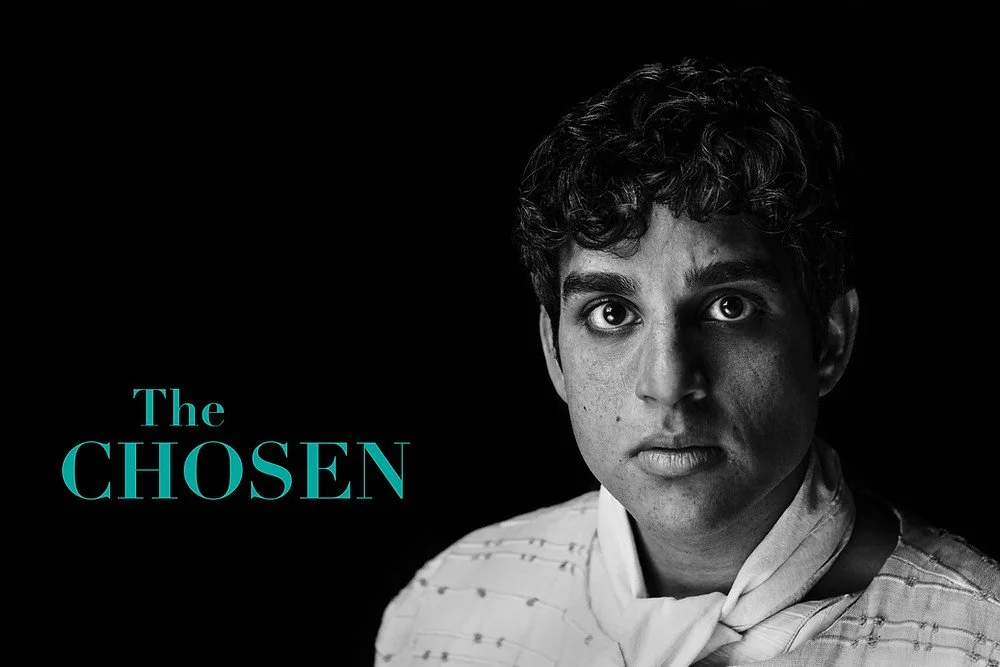By now, if you haven’t heard of the TV series called “The Chosen”, then you’ve really been missing out! It is only the first ever multi-season series about the lift of Christ and the #1 highest crowd-funded project of all time. They’ve made little phrases popular like “Get used to different” and “Binge Jesus”, you know, like instead of binging on Netflix. And one of the things I really appreciate about this show is that they really did their homework in researching the historical and cultural background of the Gospels. I also like their character development of the disciples and how they really try to stay true to the general flow of the story of Jesus. Yet, one of the things I appreciate the most about The Chosen is how they chose to depict Matthew the tax collector. Based on Matthew’s meticulous attention to detail in his Gospel and how that would have really helped him in his career as a tax collector, they decided to portray Matthew as being on the Autism spectrum. And though this is not explicitly in the text of Scripture, as the actor portrays Matthew, one can see how this could have been plausible. His portrayal also helps the viewer understand how difficult it would’ve been for Matthew to be accepted and accommodated among Christ’s chosen disciples, not only because he was a notorious tax collector, but also as someone who’s neurodivergent or different. And this depiction of Jesus so graciously choosing a tax collector like Matthew, who would have been seen as one of the worst of sinners and different, would have given the hope of grace to the chief tax collector of Jericho.
You see, towards the very end of Jesus’ ministry as Messiah, He was about to pass through Jericho on His way to the Passover festival in Jerusalem. And in this city was a man named Zaccheus, who wasn’t just a tax collector, but a chief tax collector. Now for a Jew to become a tax collector for the Roman Empire, was to work for the oppressor of your own people, and thus the Jews despised tax collectors as the worst betrayers of their people. So the fact that Zaccheus was the chief tax collector in the region of Jericho, already gives us an insight into how he was viewed by the people. Now during this time a tax collector could get rich without defrauding people, however Zaccheus, as the chief tax collector, chose to make himself very rich by cheating his own people. Now, it’s easy for us to judge someone like Zaccheus as being morally bankrupt and probably sensing no need of a Savior due to the corrupt way he acquired his riches. Plus didn’t Jesus just say in the previous chapter, in Luke 18:22-24, that it’s hard for a rich man to enter into the Kingdom of God? Yet, Luke records for us, in Luke 19:3, that this “worst of sinners” had a deep desire to see Jesus! He must have heard the reports about Jesus’ love, kindness, miracles, and especially how He graciously chose another tax collector called Matthew to join His team of disciples. And then his heart must have really gotten stirred to action when he heard that this same Jesus was about to pass by! This exciting news had already caused a large crowd to gather, however, Zaccheus had another problem. He was different. He was a man of small stature, which in that culture meant he was likely 5 feet tall or less. And this crowd was completely unwilling to accommodate someone who was different, especially someone they considered one of the worst of sinners. And though Jesus was about to pass by this gathered crowd, they would not create a safe space for grace.
And this got me thinking about the crowd that gathers every Sabbath (Saturday) morning, or in small groups during the week, or even the families in our homes. Are the spaces where we do life on a regular basis, really safe spaces for people to experience Jesus? And if not, then how do we create safe spaces for the worst sinners, and the different, to experience grace? For example, this month (April) is Autism Awareness month. And I wonder how many of us have an accurate understanding of what Autism is, and how to make accommodations in our spaces for those that are neurodivergent or otherwise different. Are our spaces safe for them to experience grace? Can they easily sit in a pew through an hour and a half formal worship service or are accommodations needed to be made in order for them to experience grace? This is also close to my heart because during the pandemic both of our kids were diagnosed with being on the Autism spectrum. And now we’re discovering that my wife Deedre is likely on the spectrum as well, so this question hits close to home for me. Yet, the beautiful thing about Jesus is that He lays out principles, laced throughout His story, like this encounter He’s about to have with Zaccheus, that if we pay attention, provide us answers to questions like “how do we create a safe space for grace?” So let’s enter this story beginning in Luke 19:4 to find out…




